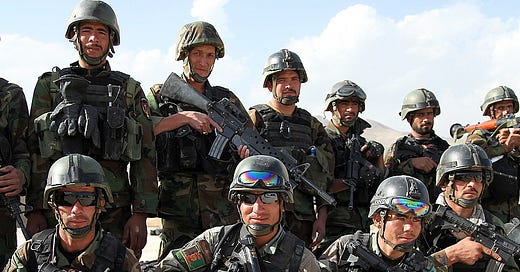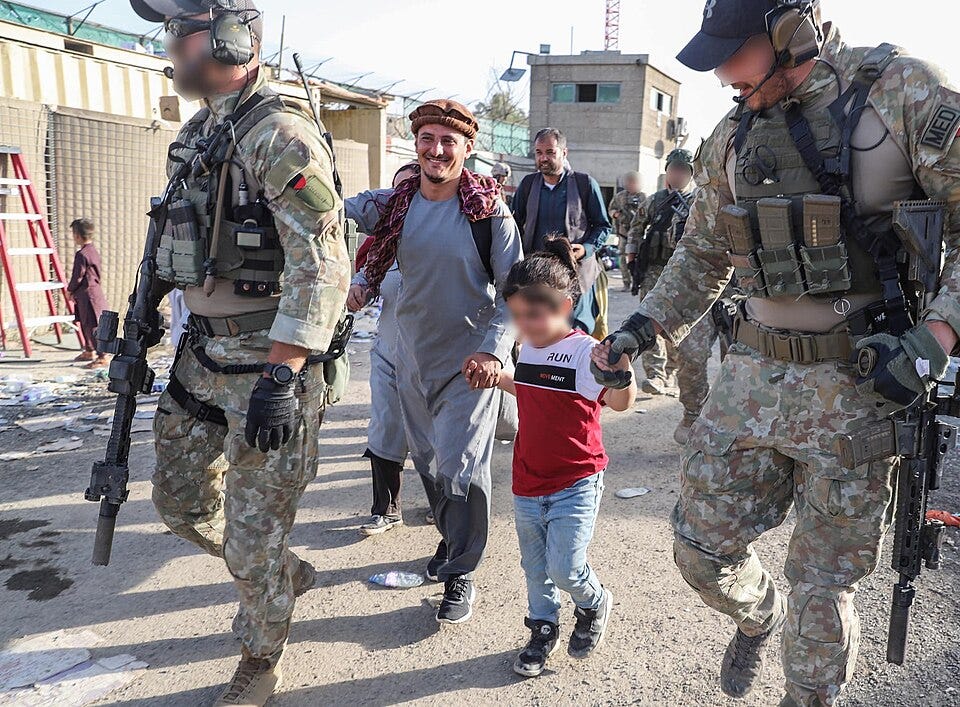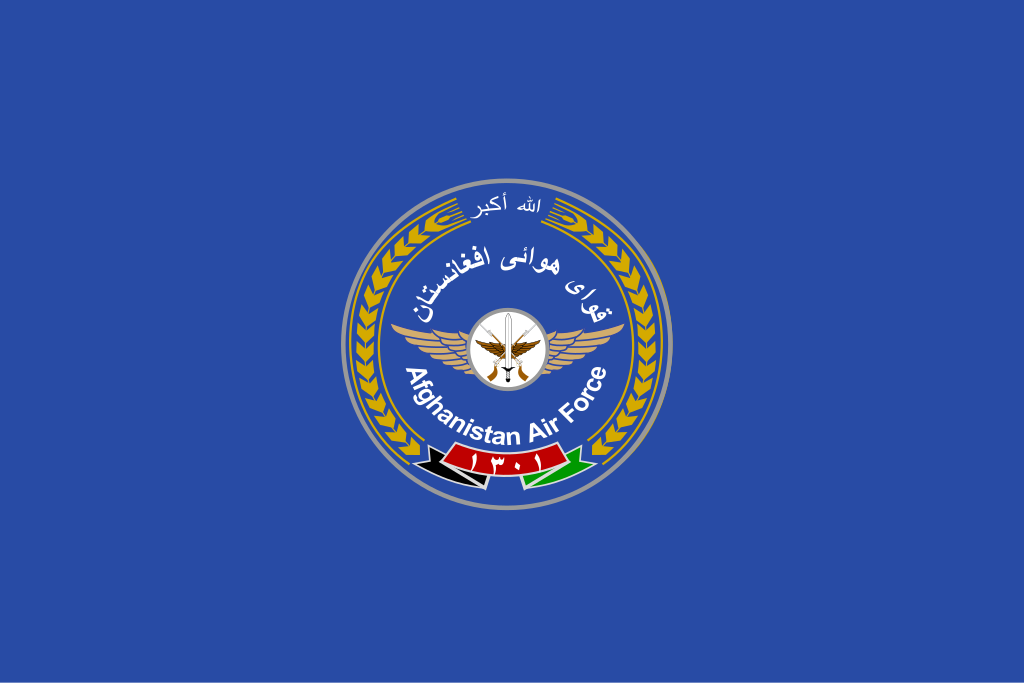(GCV Note: Col Khial Shinwari’s previous articles can be found here)
August 15, 2021
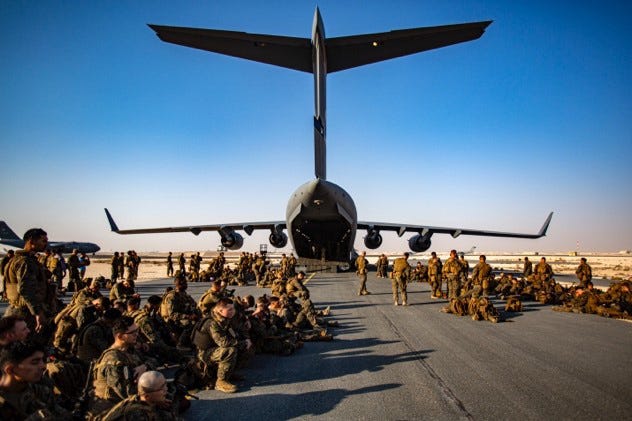
I was the first Afghan pilot in history to fly the mighty C-130 Hercules. That aircraft wasn’t just a machine but a monument to progress. It symbolized sovereignty, pride, and the hope that Afghanistan could one day stand alone. I remember my first flight vividly: the feel of the controls, the roar of the engines, and the incredible weight of responsibility resting on my shoulders.
That flight was a joy.
That flight was power.
That flight was Afghanistan rising.
I never imagined my last flight in that same aircraft would feel like lowering the flag at a national funeral. I never imagined I’d be flying out of a city that no longer belonged to its people.
But on the night of August 15, 2021, that’s precisely what happened.
The Calm Before the Collapse
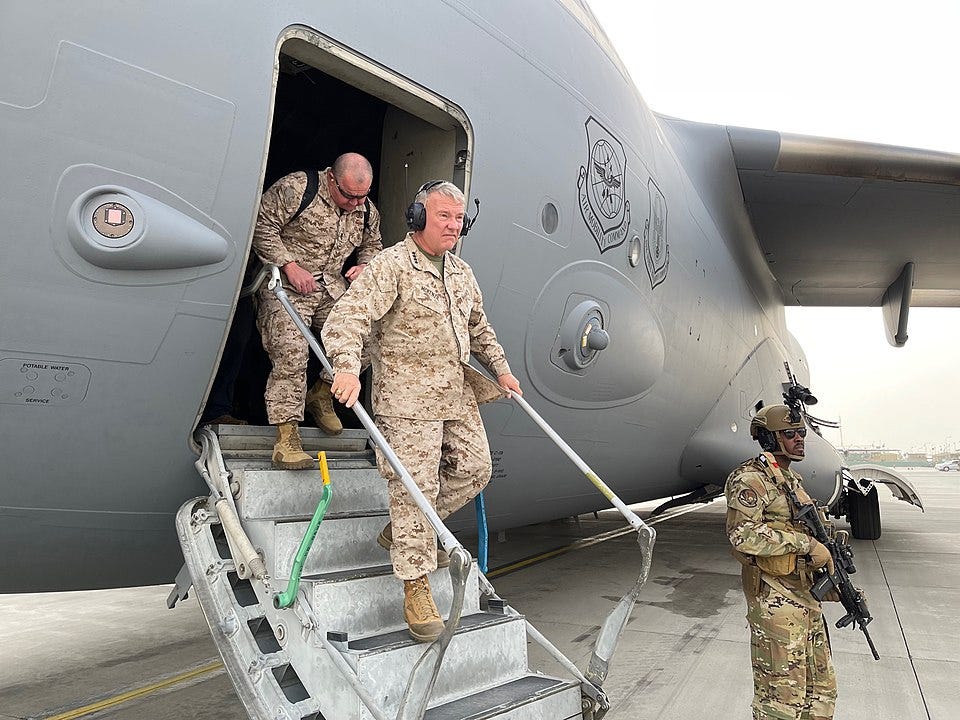
That morning, I had just returned from Kandahar with a damaged engine. I headed to my room for a few hours of much-needed rest before an evacuation mission later that evening. I noticed several missed calls from a friend, Major Waziri. When I called him back, he sounded anxious and asked to see me immediately.
We sat together in my room. He looked me in the eye and asked, “Is Afghanistan about to fall?”
I shook my head, confident in the strength of our international alliances.
“No. NATO forces are here. Embassies are still open. America won’t let that happen.”
We shared a morning drink—the kind that dulls exhaustion and numbs the creeping sense of dread—and he left.
Then my phone rang again. This time, it was my father. A retired Afghan Army Colonel, he had served the country for 36 years, losing his leg to a landmine in the ’90s—but never his spirit. Even after retirement, he continued to advise military leaders.
“Son,” he said, his voice tight with worry, “get your things together. People are coming to the house asking about you. I’m scared.”
I tried to reassure him, but he insisted.
“I fear for you more than any of your siblings—because of who you are.”
I paused and said, “Baba, I know what you’ve done for us. You raised us like soldiers and educated us through war and peace. I am who I am because of you. These 130 soldiers in Kandahar are someone’s sons, too. Someone’s husband, someone’s father. Their families are as worried as you are. My crew and I—we’re their only hope.”
There was a long silence. Then he said, with a strained voice,
“I’m proud of you, my son. Call me when you return.”
His words gave me the courage I didn’t know I needed.
Panic in the Capitol
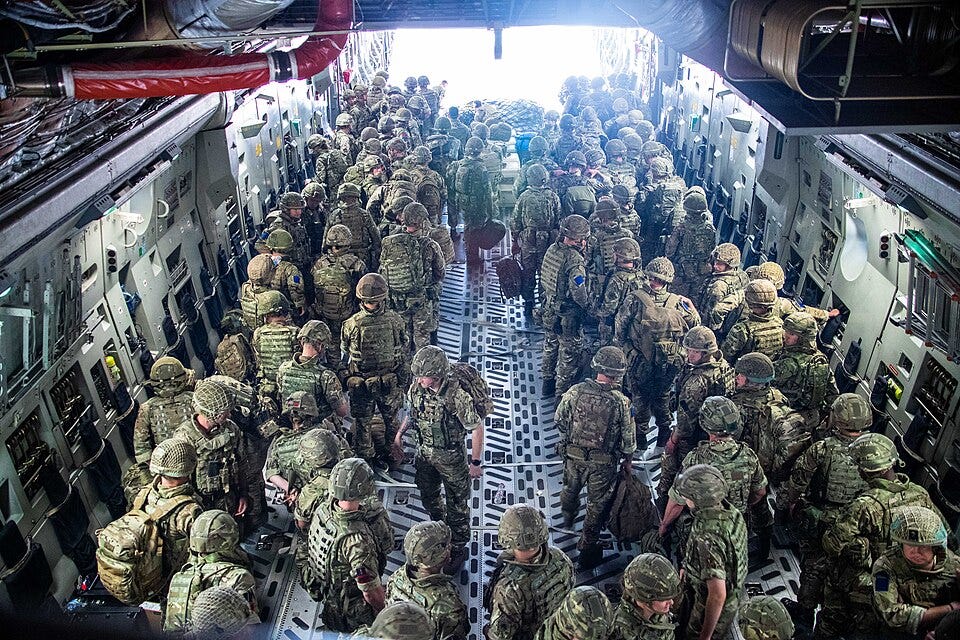
I called two close friends and said, “Bring your weapons. Come to my house. We’ll hold out together. We’ll defend ourselves if we need to.”
I reminded them of my father’s advice to lay low and minimize communication: “No one should know where we are until everything settles.”
We stopped at a store for essentials—panic, looted shelves, confusion. Then the Commander called again.
“Forget the escape plan. Return to base. There’s a rescue mission to Kandahar. Speak to General Alizai for confirmation.”
I looked at my friends and said, “We’re heading back.”
U.S. Navy personnel had locked down the Air Force base at the gate. The guard refused entry until I asked him to make a quick Radio call.
“Tell your commander Colonel Shinwari is here to fly the C-130 to Kandahar.” I have been flying with coalition air forces support for three days. He confirmed and waved me in.
“But only you,” he said.
I turned to my friends.
“Do what you must to follow me. I won’t leave without you.”
An Apocalypse on the Runway
The airfield looked like a warzone.
Aircraft scattered everywhere—some abandoned, some damaged. Civilians surrounded the planes, begging, screaming, trying to climb aboard. Some soldiers fired warning shots into the air. A C-208 Caravan narrowly avoided a mid-air collision. Rumors swirled that another had crashed into the Salang Mountains.
I gathered my C-130 crew. But we couldn’t refuel. The base was overwhelmed.
I told the crowd around our aircraft:
“I’m going to Kandahar to rescue soldiers. If I return, I’ll take you.”
No one trusted anyone anymore.
Just before taxi, we got the call:
“Mission terminated.”
I shut down the engines. A crew member opened the ramp. Within minutes, 400 people rushed aboard.
Soon after, VIP vehicles surrounded the aircraft.
A high-ranking official approached and asked if I was ready to flee to a neighboring country. “Are you ready to leave?”
I replied confidently, “Sir, there’s no way we’ll make it to that country.”
He was suspicious. In a moment where trust had collapsed—especially across ethnic lines—he assumed we were betraying him.
One VIP screamed,
“If you don’t take us, I’ll blow up this aircraft!”
He summoned his bodyguards—one carried an RPG. I had to act fast.
A Miracle on the Tarmac
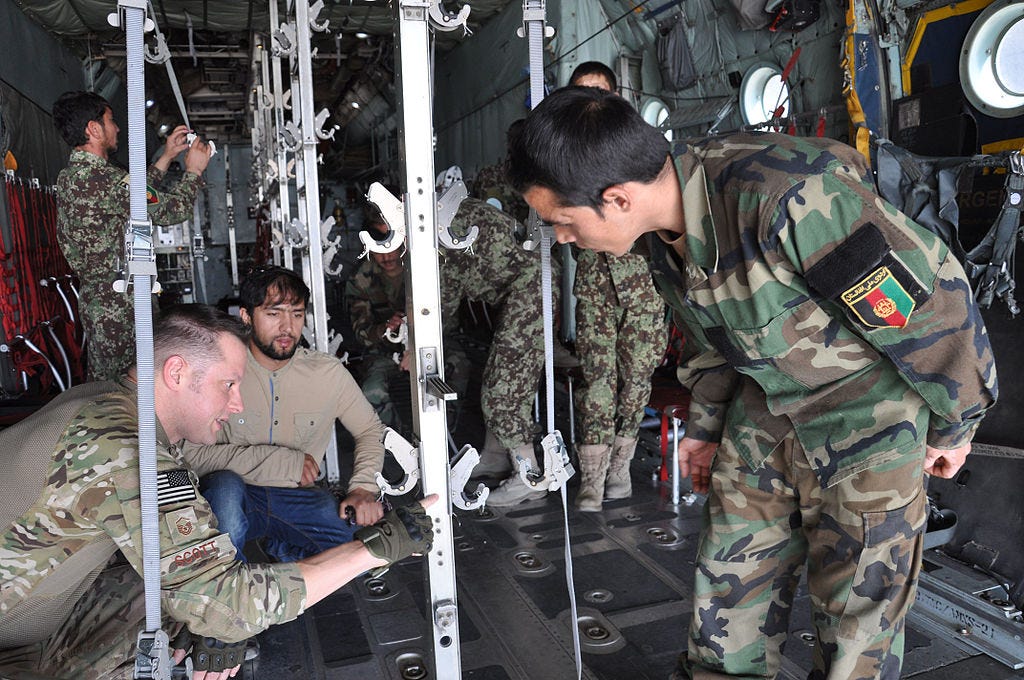
Minutes later, LTG
arrived. It was our first time meeting in person. He handed me his phone so I could send the aircraft’s coordinates to the NSU (SOF) unit so they could help.We waited two hours, but there was no sign of the NSU.
General Alizai asked, “Can you fly the damaged C-130 with three engines?”
“It’s risky,” I said.
“I’ll fly with you,” he replied. “And so will the Air Force Commander and three other generals.”
I agreed to fly it single-pilot—but I needed a flight engineer.
Afghanistan had only four C-130 flight engineers. One had left the country. The Taliban assassinated another. A third had fled on a civilian jet. The last was hiding at home.
I called him and explained everything.
“Come with me. I’ll help you escape.”
He climbed the base wall with help, wearing traditional clothes. He boarded and started the APU.
But we had no working headset for the Commander, who was now seated as my co-pilot to help flip switches I couldn’t reach. We went to find one.
As we returned, Alizai called:
“Abandon that aircraft. NSU cleared the good one. Go now!”
We crossed the runway in an armored Land Cruiser. The NSU commander had my photo on his phone.
“I kept my promise. I risked everything to clear your aircraft. Now keep yours: save my men—or fly to a third country.”
“I’m going to rescue my brothers,” I told him. “I’ll be back before midnight.”
He assigned four guards to fly with us—to ensure we didn’t escape.
As I stepped onto the aircraft, I felt the eyes of 400 Afghan Air Force officers, engineers, and NCS soldiers—including my own team. I knew they feared I was abandoning them. But this mission wasn’t a betrayal—it was about saving others.
I requested the NSU allow the entire C-130 team to board.
We had been informed that if we didn’t evacuate the 130 soldiers in Kandahar before dawn, they would be in grave danger. We later learned that the urgency was due to the Taliban leader’s planned arrival at the airport the following day.
As the world watched Kabul fall, I texted my Air War College classmates, Colonel Savas and Lieutenant Colonel Will Selber:
“I will be flying to Kandahar. If you don’t hear from me in the next 3 hours, please help my family.”
The Final Take Off
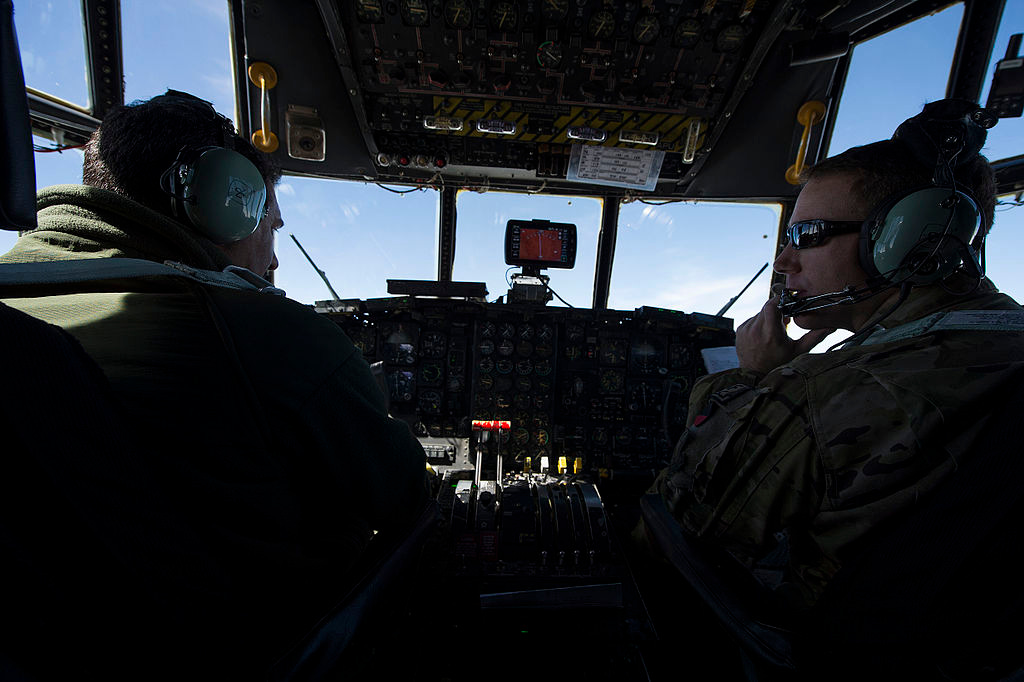
Thirty-six of us boarded: pilots, engineers, soldiers.
Blocked by the guards, my best friend waved at me from the outside—the same friend I had promised to take with me. I stepped out and pulled him in.
When I returned, someone had taken my seat. The engines were running. Five minutes later, we took off.
Kabul below looked like the end of the world.
We landed in Kandahar. Rescued 130 soldiers and returned to Kabul.
The ramp was flooded with civilians. We parked somewhere unauthorized, dropped the soldiers off, and were escorted by U.S. forces to a secure area.
Later, our commander asked, “What happened to the 400 people on board earlier?”
The answer came quietly:
“There’s no one left.”
The Completion of the Mission
I collapsed from exhaustion—over 24 hours without sleep.
Friends and U.S. allies helped me reunite with my family the next day.
On August 24, the U.S. Air Force flew us to Qatar, then Germany, and then, on September 1st, to Washington, D.C., and Later, to Fort McCoy Army Base.
Colonel Savas Kiryakidis and his wife drove 12 hours from Wisconsin to Tennessee to bring us to their home. They gave us their children’s rooms, fed us, and welcomed us for weeks until we found a place to live.
They gave us a new beginning.
Final Thoughts
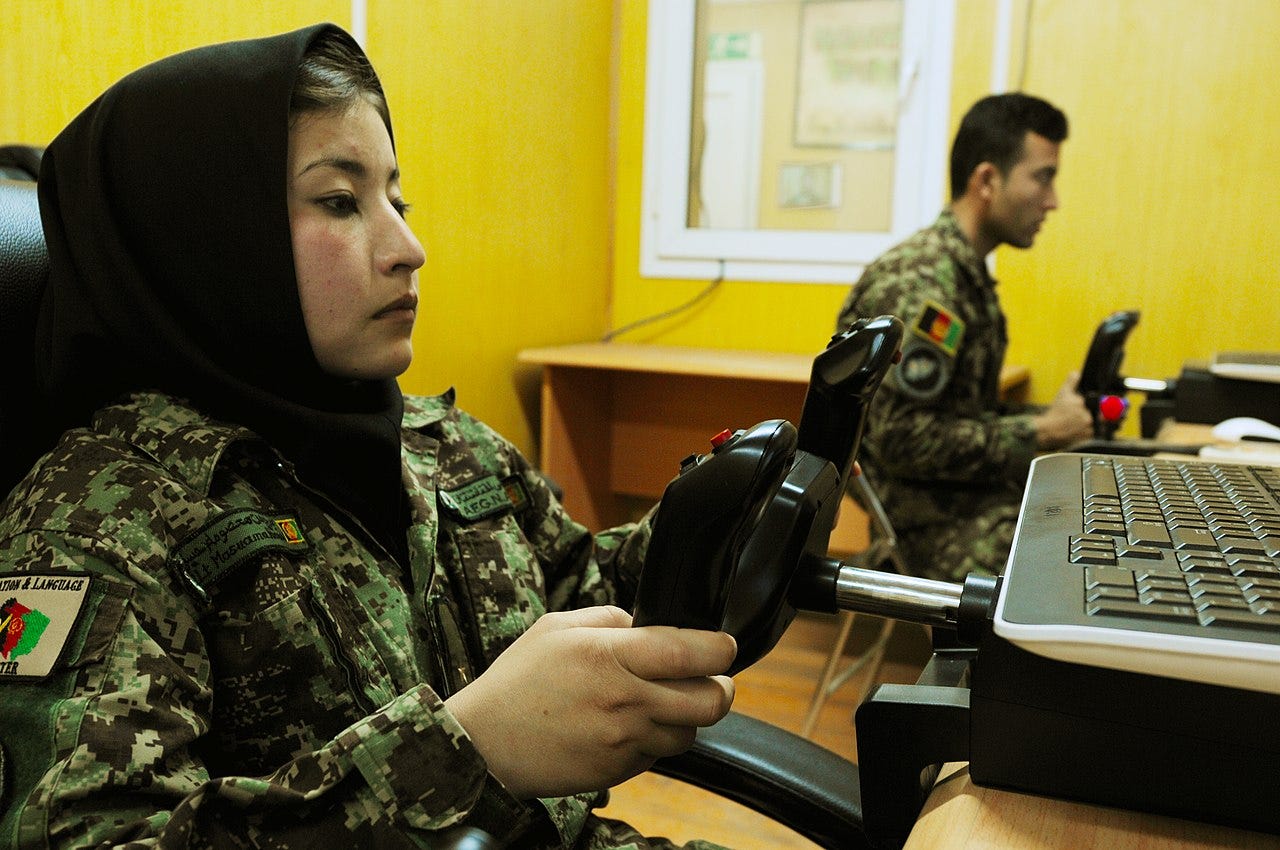
I carry no bitterness in my heart—only sorrow. Sorrow for a country that raised me trained me and then vanished before my eyes. For soldiers who stood their ground until the last bullet, only to be left behind. For the families who waited for loved ones who never came home. For my people, whose hopes were buried beneath the dust of Kabul’s runway.
Every time I close my eyes, I see the faces of those I couldn’t save. I hear their voices. Their pleas. The desperate knocks on the fuselage. The weight of that night will never leave me. It’s stitched into the fabric of my soul, like the uniform I once wore with pride.
That final flight was not just an escape—it was a farewell to the dreams we built over two decades, to a flag we saluted under sunrises and gunfire, and to the belief that Afghanistan could one day soar on its own wings.
I did not fly that mission alone as a pilot. I flew it as a son who made his father proud, a brother who kept a promise, a leader who chose duty over survival, and a man who could not turn his back while others begged for a chance to live.
I left Kabul with my heart shattered—but my spirit intact. And though the skies I now fly are far from home, I carry every name, every tear, and every sacrifice with me.
The mission is over.
But the story is not.
Afghanistan lives in those of us who remember her, still believe in her people, and will never forget the day her skies fell silent.
Dedication
This story is for my brothers-in-arms—those who flew and fought beside me, seeking no glory but the chance to serve. It is for the 130 soldiers we rescued and the thousands we could not, for the engineers, officers, and ground crew who kept our fleet alive when the world had discounted us.
To every American soldier who served in Afghanistan, standing shoulder to shoulder with us to the last day, I salute you all. You are the finest soldiers, brothers, and comrades I have ever been honored to serve alongside.
To my father, whose strength shaped my own, and to my wife and family, who endured sleepless nights and feared every unanswered call, your love sustained me through the darkest hours.
I express my heartfelt gratitude to Colonel Savas Kiryakidis and his beautiful wife Rita and Lieutenant Colonel Will Selber—my mentors and lifelines. Their support and encouragement during my final days in Afghanistan and later in the United States allowed me to rebuild my life. Their compassion gave my family a second chance and gave me unwavering love and care.
To me, angels walk among us in the form of friends, brothers, family, and mentors like Colonel Savas and his beautiful Wife Rita and my Brother Lt Col Will Selber. I thank you all from the depths of my heart.
Lastly, this is for Afghanistan—not the one that fell, but the one that thrives in the hearts of its people.
Though we may have been forced to leave her skies, we will forever carry her spirit.

